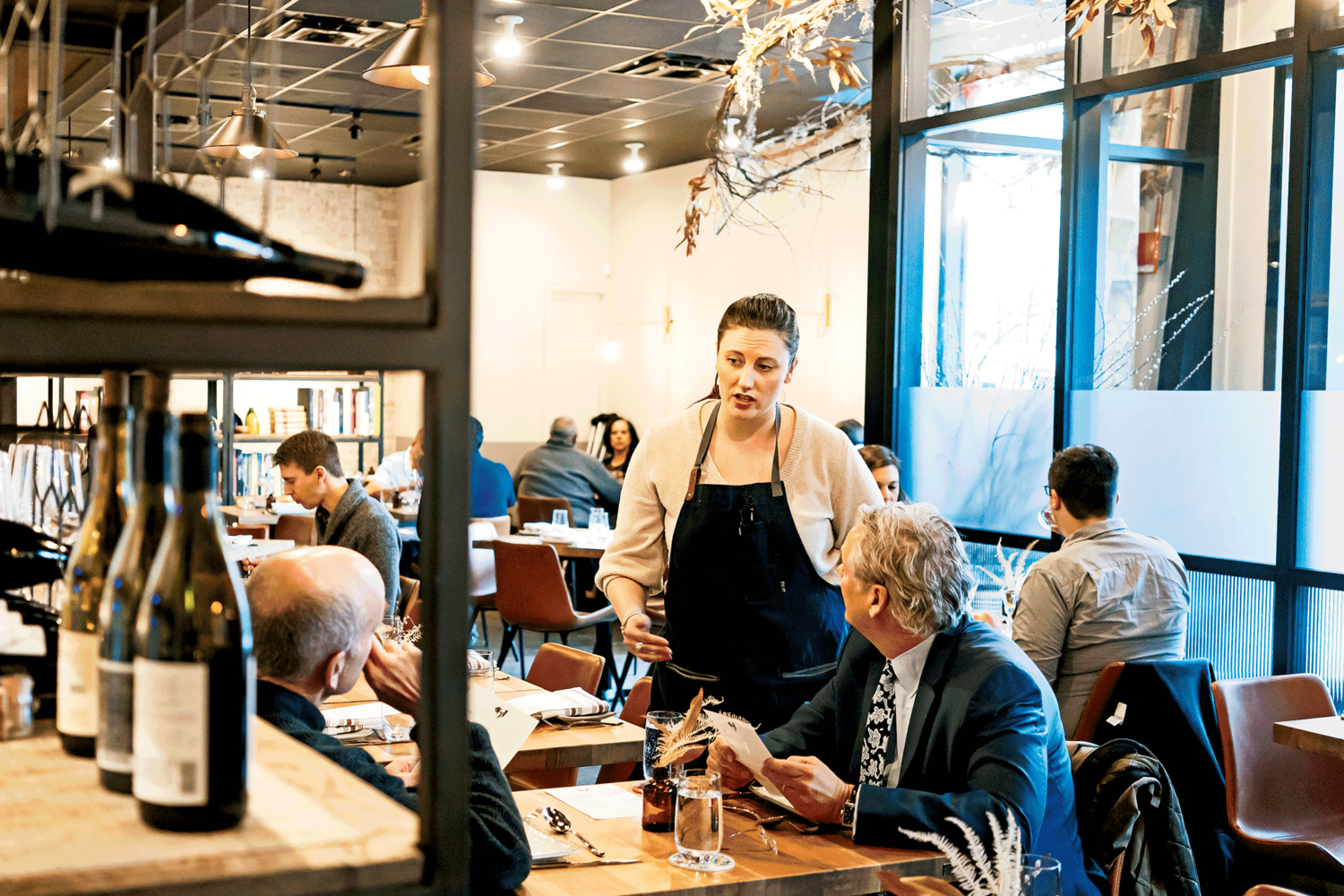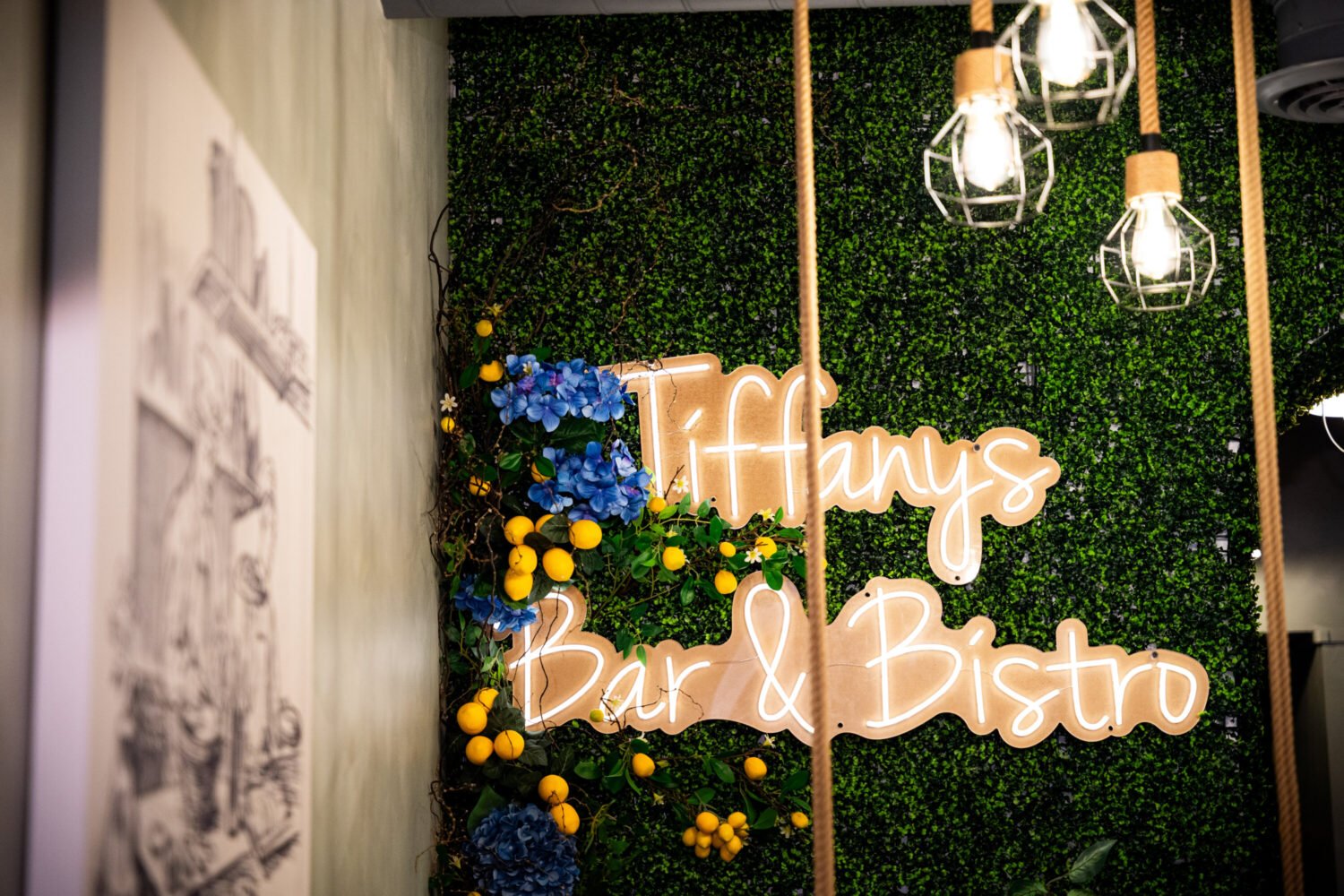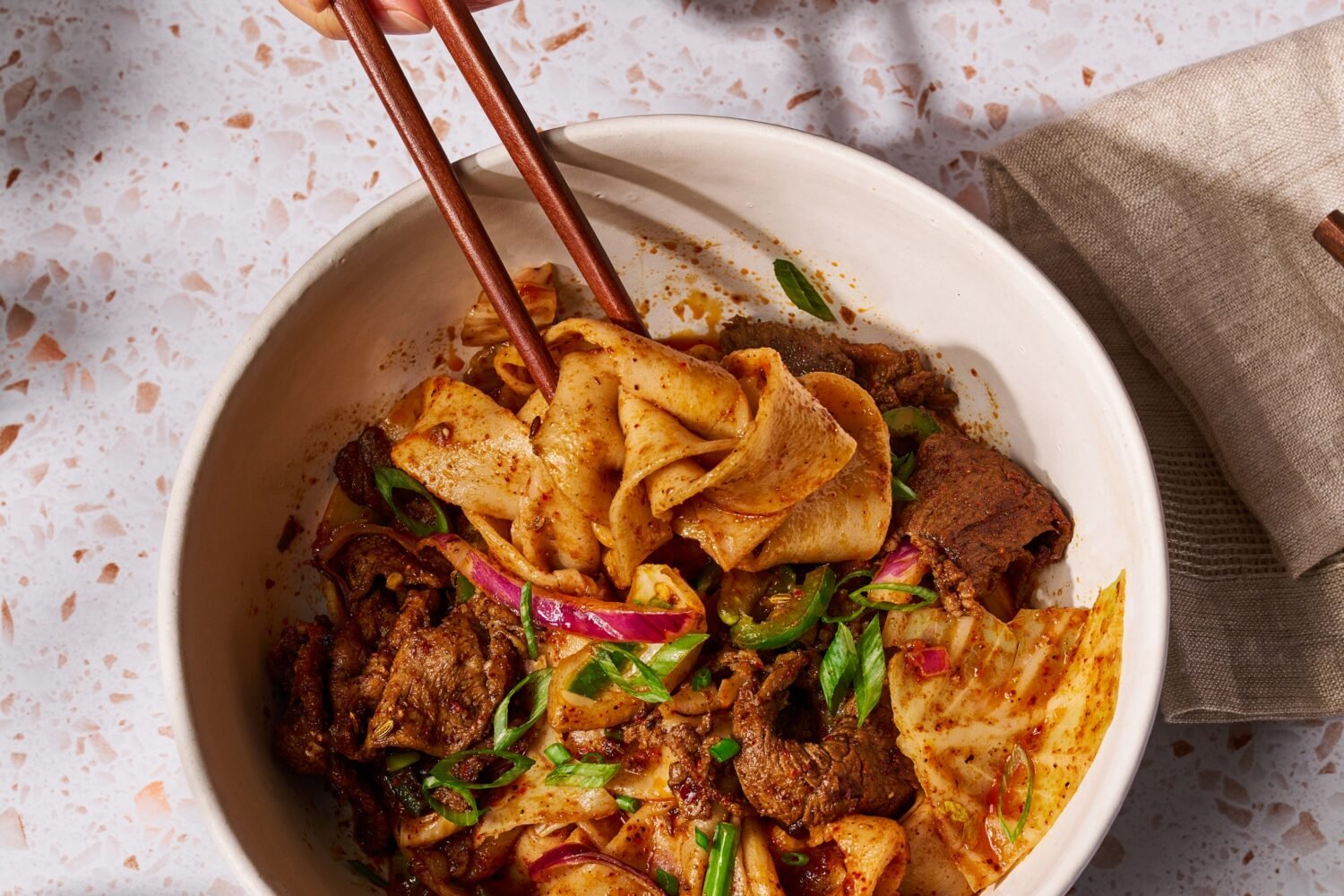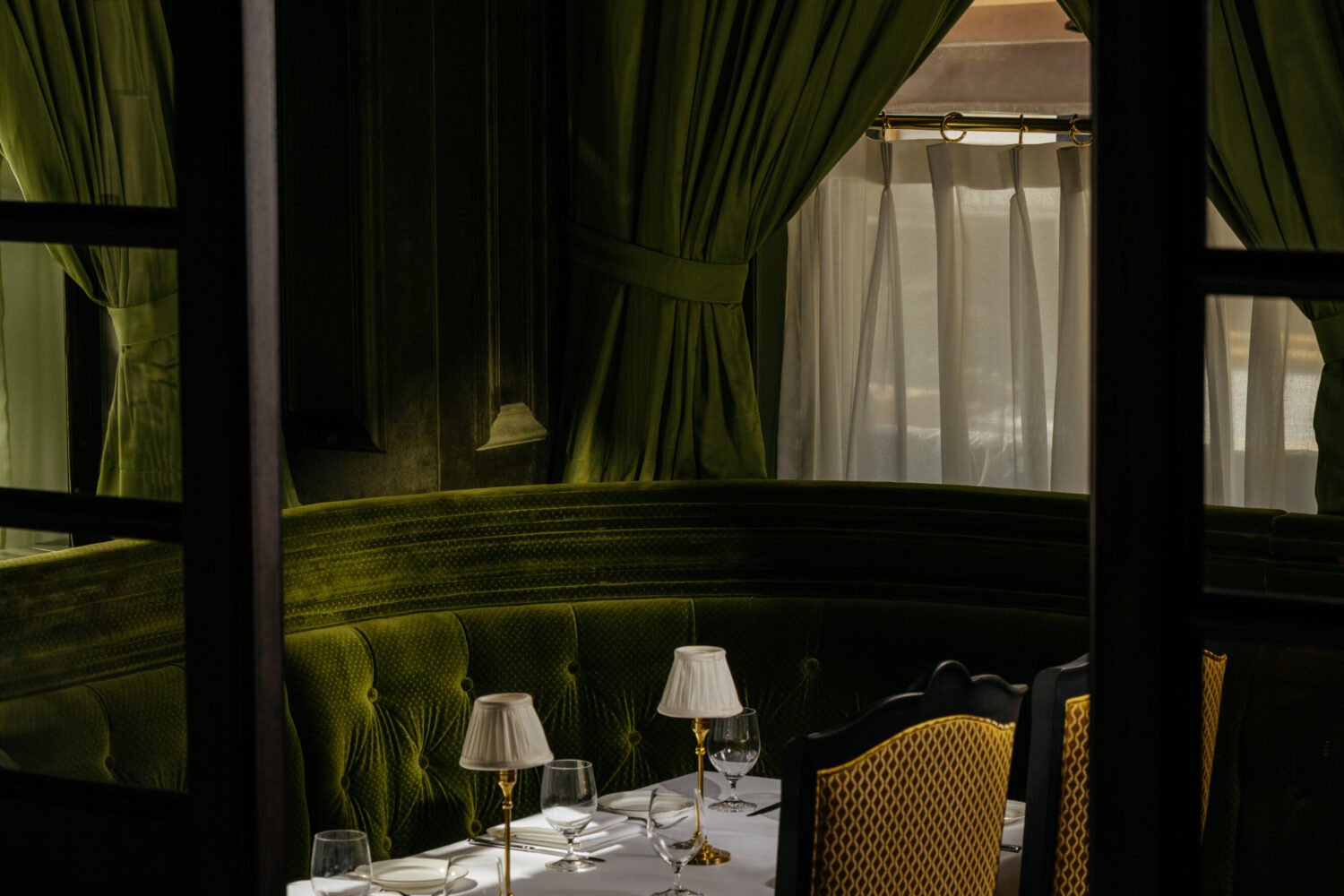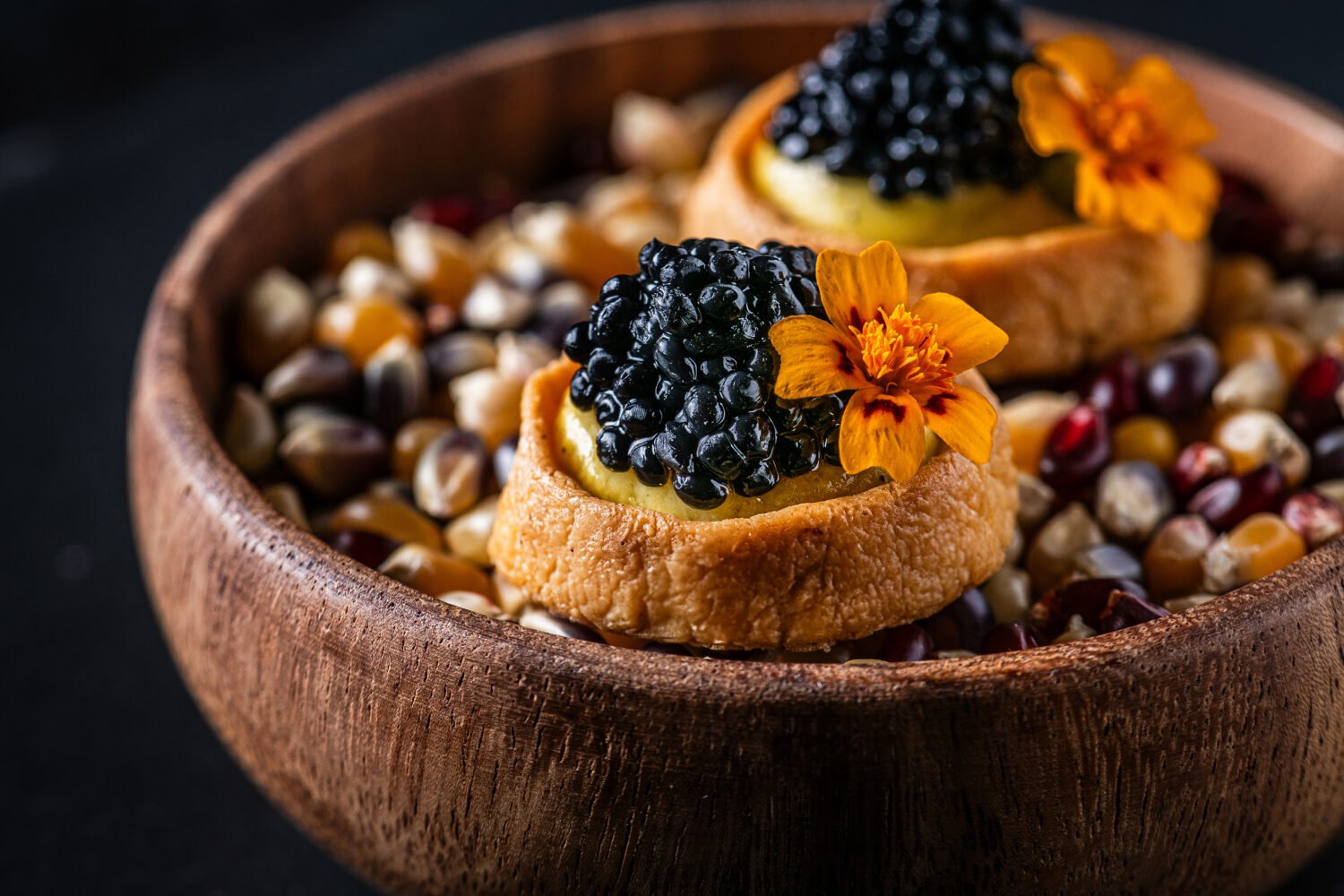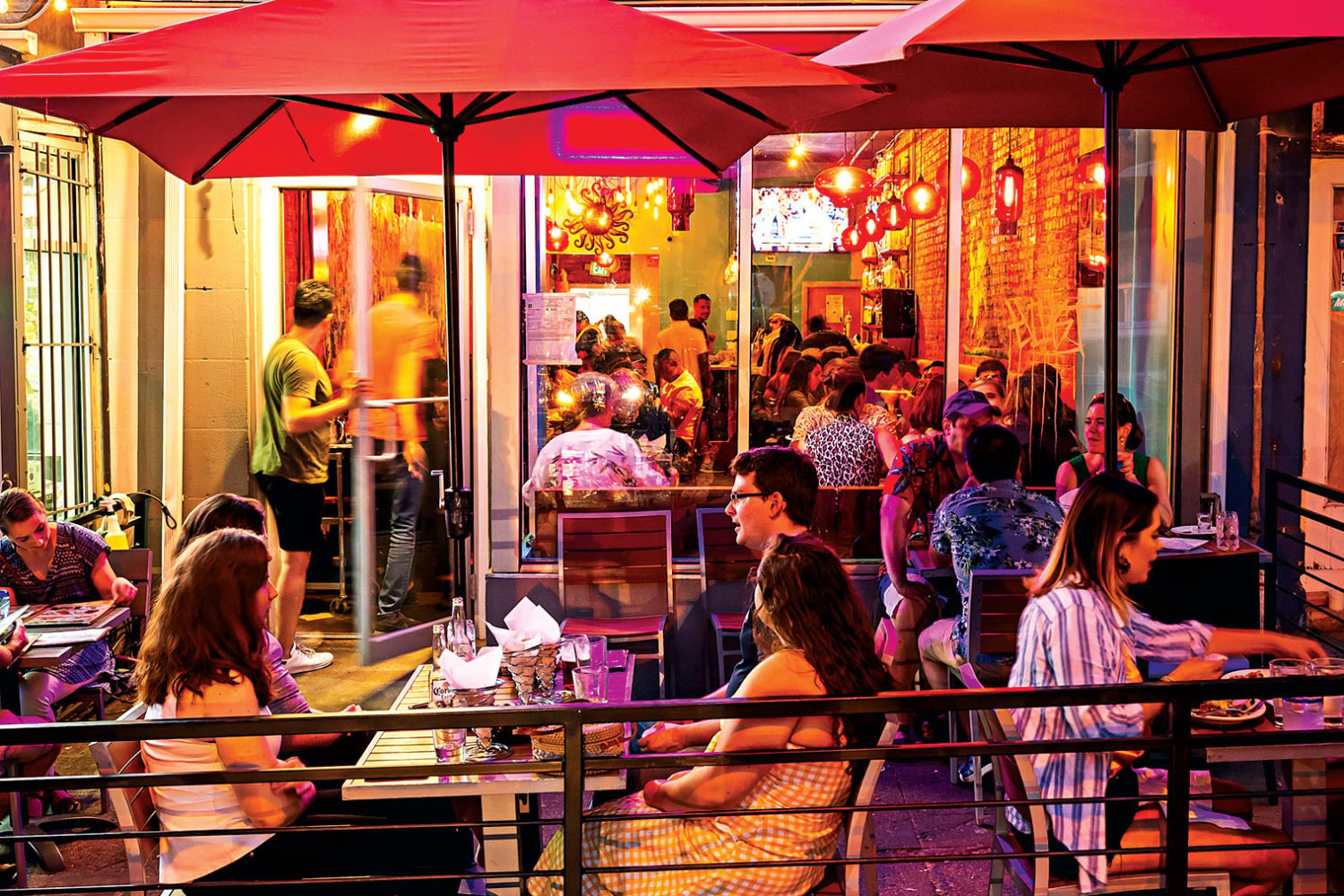On paper, it didn’t sound all that exciting: Yet another prix-fixe-only restaurant where the owners want to tell you just how to eat. Yet another restaurant on restaurant-packed 14th Street. In the kitchen? A federal auditor turned chef I’d never heard of.
But, like a soccer mom with a soft spot for death metal, Rooster & Owl flouted just about every expectation I’d laid upon it. The restaurant, from first-time owners and Falls Church natives Carey and Yuan Tang, is intensely personal, down to the name. Carey, who leads donor relations by day at Children’s National, is the early-rising rooster. Yuan, a chef who trained at Rogue 24 and New York’s Dovetail, is the night owl. The main atmospheric touch in the 56-seat room, besides a befuddling array of dried-to-a-crisp brown branches, is the couple’s cookbook collection, the breadth and variety of which will strike envy in the hearts of obsessives. (I was tempted to ask the bartender to pull down the copy of Modernist Cuisine so I could steal a look.)
The premise at Rooster & Owl is a quietly bold one. The only option is a $65 four-course menu that offers a quartet of dishes to choose from in each section. Then they’re meant to be shared. If this has you thinking, “Please, not again,” you’re not alone. Many chefs simply treat share plates as appetizers writ large, or hard-to-saw-up entrées. And portion sizes on tasting menus tend to be either dainty or overwhelming. (Ever been held food hostage? It ain’t fun.)
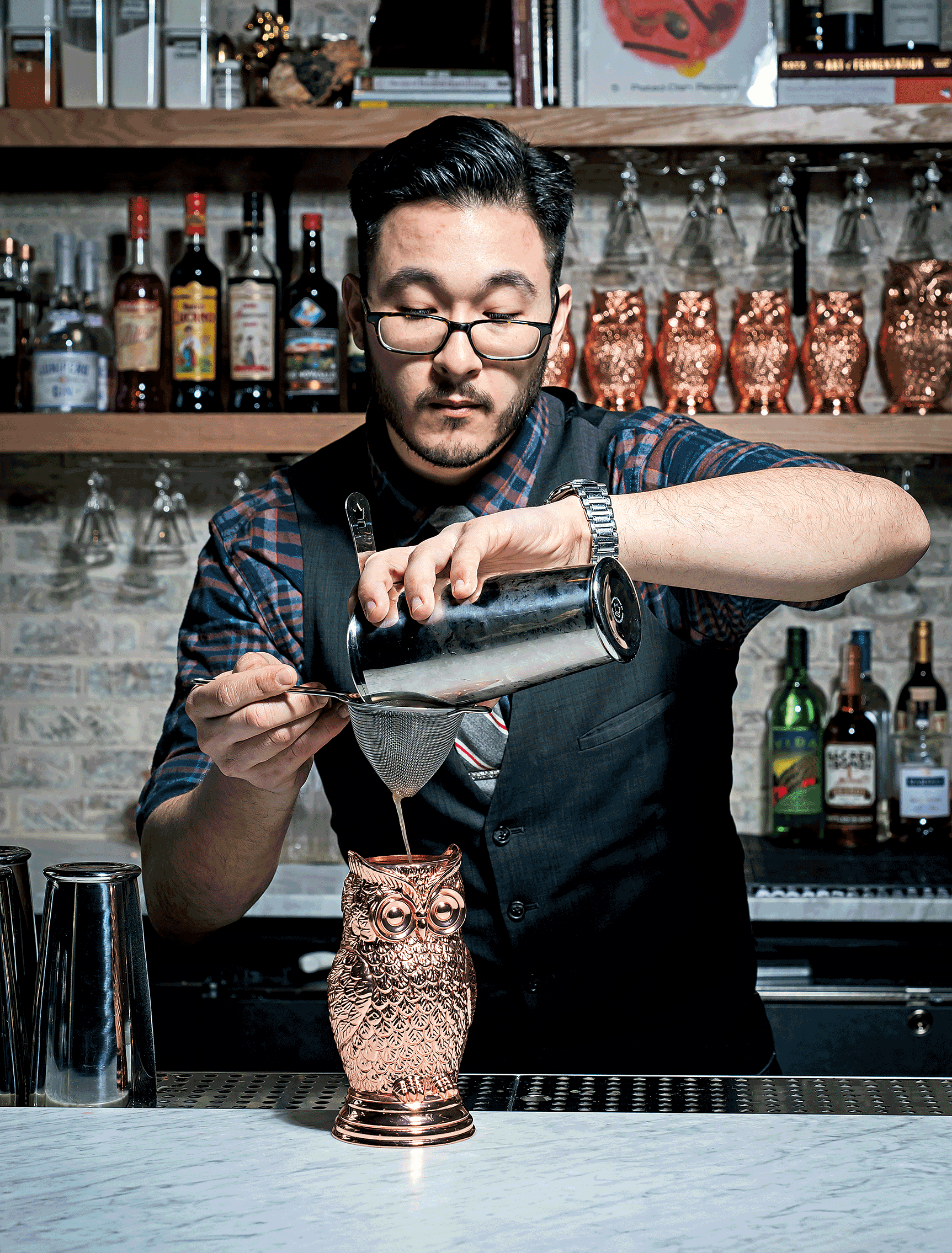
But the Tangs, who refined their vision with a series of pop-ups over the last couple of years, think much differently. For one thing, they take into consideration the experience of actually eating a dish—something an alarming number of chefs ignore. A few years ago, I was at a several-hundred-dollar tasting-menu dinner. Suddenly, my hands were covered in duck liver—the foie gras “bomb” I’d just been handed detonated early.
In Yuan Tang’s kitchen, dish sizes have been carefully calibrated so you leave sated but not stuffed—or wanting a post-dinner bowl of cereal. The elements of each creation are designed so that each person will get that magic bite—the one that includes every flavor on the plate. No tufts of foam or dots of sauce here.
Take one of the first courses, a bouquet of long endive leaves, each carefully dressed with a lemony vinaigrette. Underneath, a mound of coarsely ground romesco and lush ricotta. “Eat them like chips and dip,” the server suggests. They disappear quickly. The dish everyone in the food world is going nuts over—rightfully—is Tang’s riff on Carolina barbecue, by way of roasted, grilled, and glazed whole carrots and cornbread ice cream. Creamy sunchokes are transformed with Buffalo sauce and ranch-seasoned pistachios. Super-crunchy kohlrabi and earthy celery root are spiralized into what looks like a tangle of cacio e pepe. I’d trade the strands (koodles?)—sprinkled with black-sesame brittle and salty cotija cheese—for pasta any day.
Thankfully, I don’t have to. Next comes a tagliatelle that’s one of the most gratifying bowls I’ve had in recent memory. The fresh, beautifully prepared pasta is done up with a shiitake “Bolognese” bolstered with anchovies (attention, umami lovers). Tang’s gnocchi, made in the French style, with pâte à choux and zinged with preserved lemon, are nearly as terrific.
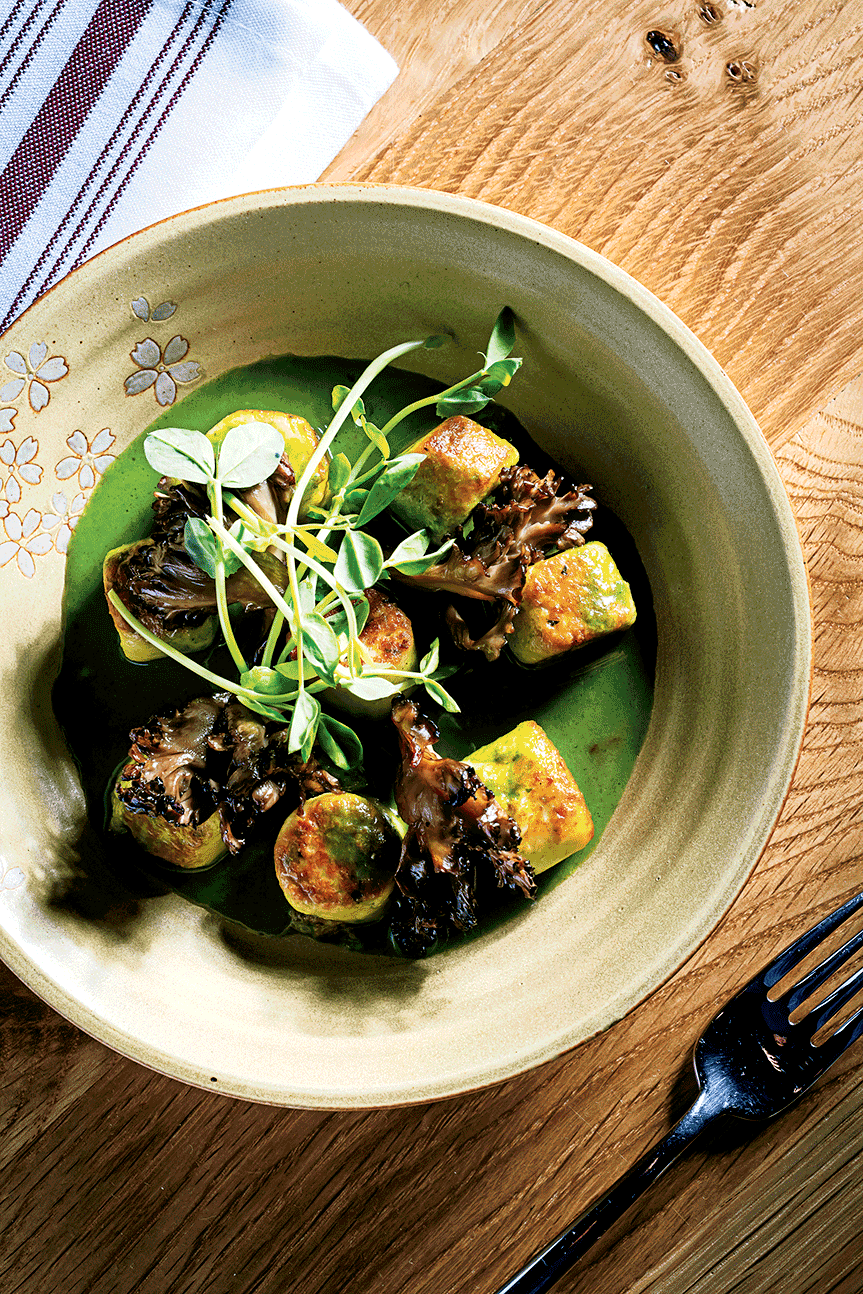 Parisian-style gnocchi with preserved lemon.
Parisian-style gnocchi with preserved lemon.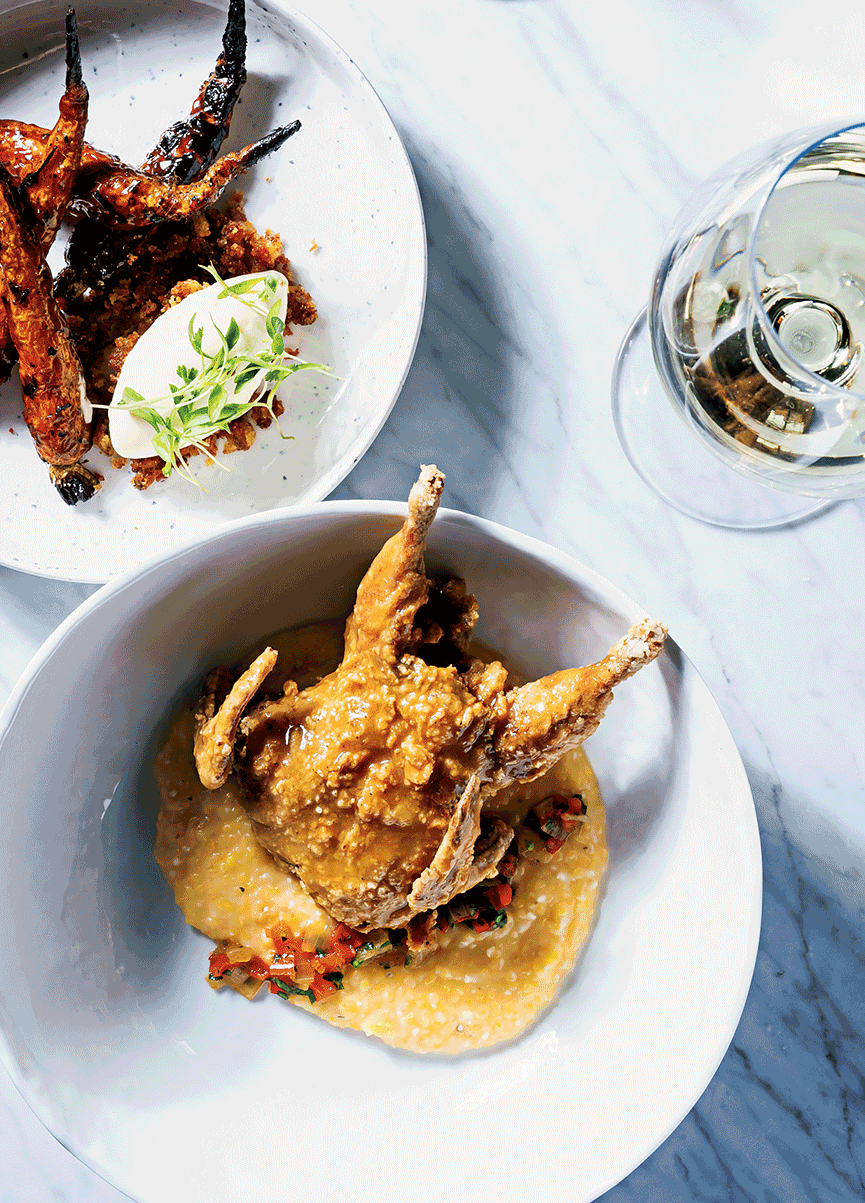 Plates of fried quail and barbecue carrots.
Plates of fried quail and barbecue carrots.By now, you might be thinking, “Where’s the meat?” It’s here, but there’s no mistaking that vegetables are what fascinate Yuan the most. He flips the notion of a traditional pot roast on its head, making the focal point creamy, ultra-buttery puréed potatoes. It’s merely garnished with braised oxtail, along with fried shallots and cubes of tangy-sweet rutabaga. The quail, buttermilk-brined and fried to a crunch you can hear, is masterful (and all about the bird). A drizzle of miso honey—yes, the idea came from that kitchen joke—is the crowning touch. The only dud among these more protein-heavy plates is Tang’s Viet-Cajun take on étouffée, here made with lobster. The sauce, conjured from a lobster-stock pho, was bland, and the lobster and rice both verged on mushy each time I tried them.
The drinks menu reads like a stroll through the Whole Foods produce aisle. I’ve got major respect for the very talented—and very affable—Jason Swaringen, who transformed beets-and-cognac and carrots-and-gin into drinks I never wanted to end.
Oh, and the bread. Perhaps the saddest holdover from the era of Paleo-mania and gluten-phobia has been the decline of the restaurant bread course. Bread is laborious to make. Dough is finicky stuff. Loaves are expensive to buy. So it’s no wonder that when customers started sending baskets back—Parker House rolls left untouched!—many restaurateurs decided either to charge for the stuff or to skip it altogether.
But the bread course at Rooster & Owl is a reminder of how welcoming and tone-setting that first gesture can be. The golden, sweetly topped rolls, served with house-made butter, look plucked off a Norman Rockwell tablescape. True to form, they arrive attached. Okay, fine, I’ll share.
Rooster & Owl
2436 14th St., NW; 202-813-3976. Open Tuesday through Saturday for dinner.
Neighborhood: Columbia Heights.
Dress: Spiffed-up jeans are fine.
Noise level: You don’t quite have to strain to be heard, but there’s a din.
Best dishes: Barbecue carrots; endive with romesco; Buffalo-style sunchokes; kohlrabi with cotija; pot roast; Parisian gnocchi; fried quail; doughnuts.
Price range: $65 per person ($35 on Tuesdays, when the kitchen serves a no-choice menu of dishes it’s working on).
This article appears in the May 2019 issue of Washingtonian.

